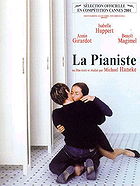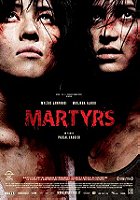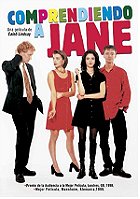Lucas (Mads Mikkelsen) a mild-mannered, reserved divorcee and father of a teenaged son, works at the local Kindergarten. He is fighting to gain more time with his son, and enjoys the company of the kindergarten kids as well as his Swedish girlfriend, Nadja (Alexandra Rapaport.) Lucas is well-liked by the community, but is best friend is Theo (Thomas Bo Larsen,) the often-drunk father of Klara (Annika Wedderkopp,) a troubled young girl who is beginning to show symptoms of Obsessive-Compulsive Disorder.
When Lucas rejects Klara’s innocent-yet-inappropriate advances in forms of a gift and a kiss, Klara makes up a lie that has far-reaching consequences. Accused of indecent behavior towards the children of the Kindergarten, Lucas must deal with the loss of his career, his friends, and his safe niche in the community. Suddenly, he is distrusted by everyone, and people shun him and outwardly lash out at him. By the time Klara tries to take it back, it’s too late. Everything has changed.
I don’t really blame Klara for the way things turns out- I’m angry, yes, but I cannot hate or dismiss her. By the time the chips have fallen into place, she barely remembers what did or didn’t happen. Unlike the events in Craig Zobel’s “Compliance,” which were set off and carried past a certain point by pure idiocy (although "Compliance" is supposedly based on a real-life case,) the events in "The Hunt" are frighteningly plausible and even, for a while, understandable.
I loved the first scene. In a seemingly jolly outburst of mirth and indiscretion, a group of male friends go skinny-dipping in a cold lake. For a moment, all is well. Then a chill falls over the film as we are shown a shot of a chilly landscape. The amiable notes of "Moondance" by Van Morrison fade into pure silence. All is not well. Disaster is hovering over the hero's head, and he will find himself doing and saying some things he never expected too.
Mads Mikkelsen is just terrific in the lead role. His portrayal of a desperate man going to desperate lengths to be heard is so dark and deep, you never doubt it for a second. All the actors are actually very good. Annika Wedderkopp, as five-year-old navigating conflicts way above her maturity level, is a young talent to watch.
"The Hunt" is just electrifying to watch because of the daunting relevance of the situation. Akin to the Salem Witch Trials, after Klara has told her lie, many of the schoolchildren start reporting abuse. You can imagine yourself in a situation like that, because if a little girl came to you revealing things she shouldn't know, who would you believe? The adult, despite your nagging suspicions? Or the child, despite your friendship with the man in question. We all hate pedophiles. But what happens when that hatred becomes irrational and turns us into something monstrous? Very interesting food for thought.

 Login
Login
 Home
Home 127 Lists
127 Lists 162 Reviews
162 Reviews Collections
Collections
 0 comments,
0 comments, 
















